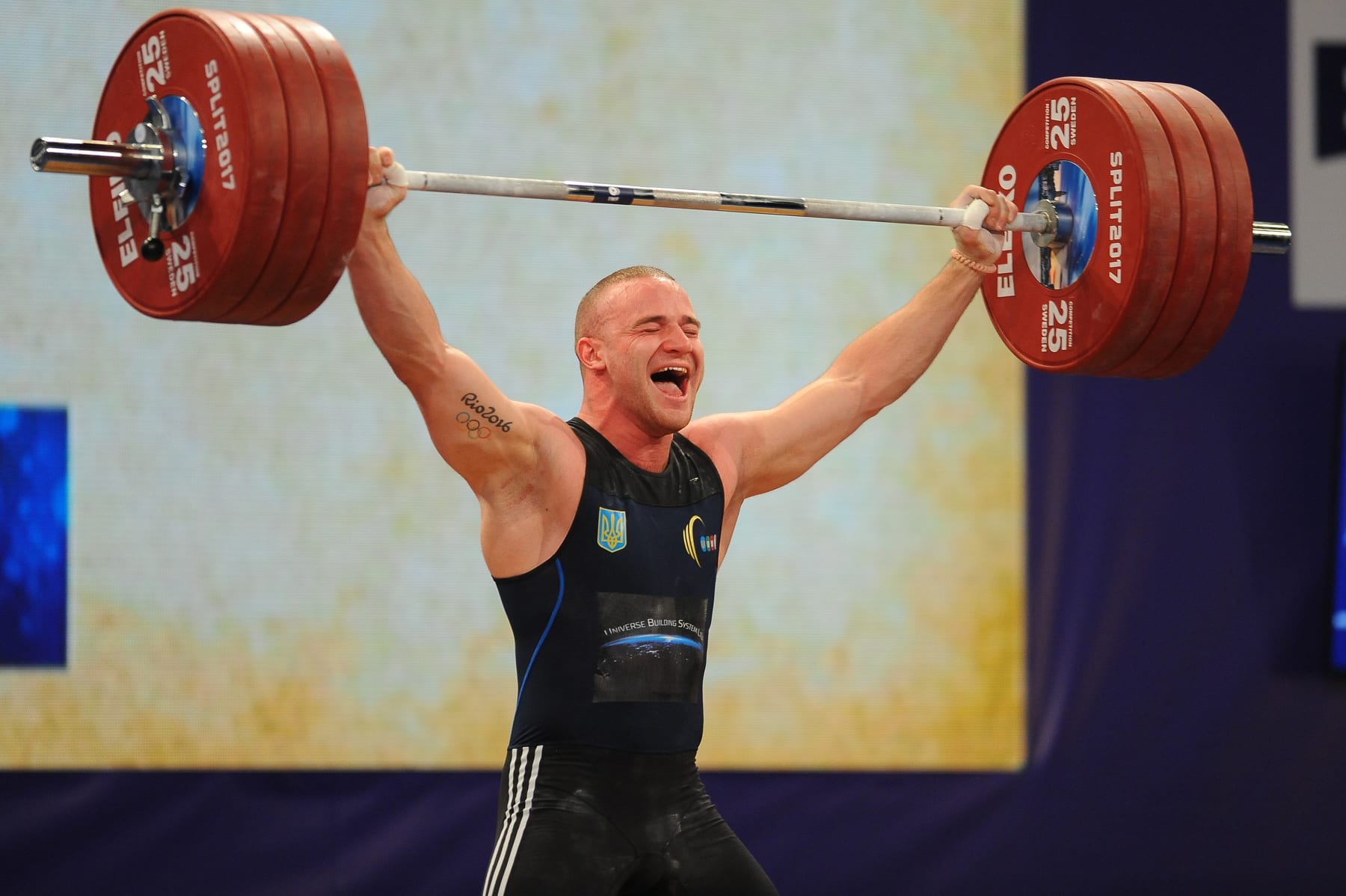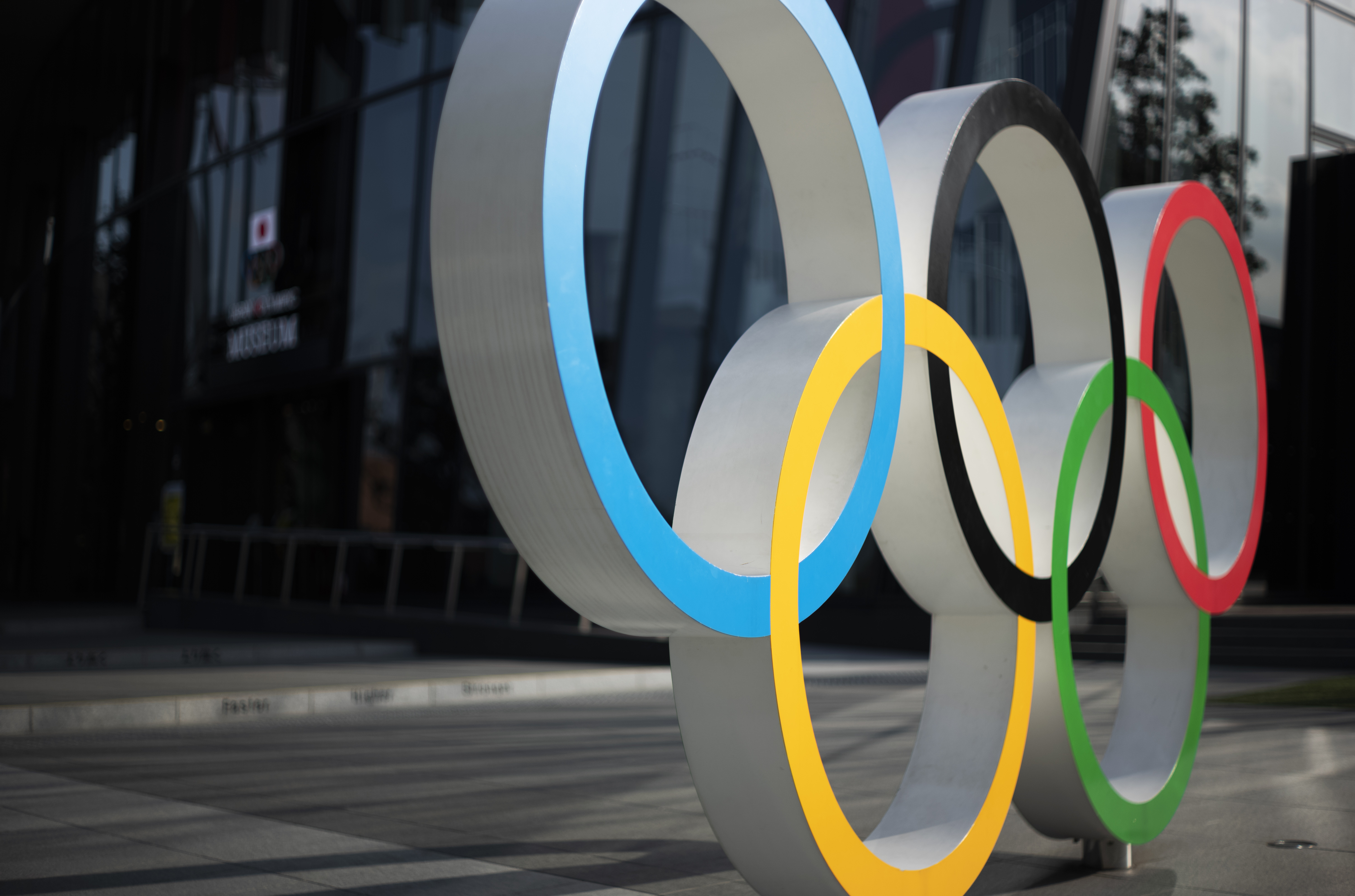N/A
Weightlifting (Olympic)
Ukraine Olympian Oleksandr Pielieshenko Killed in Russian War

Oleksandr Pielieshenko, a Ukrainian Olympic weightlifter, died at the age of 30 while fighting on the frontlines of the Russia-Ukraine war, the Ukrainian Weightlifting Federation (UWF) announced on Monday, per ABC News.
"It is with great sadness that we inform you that the heart of merited master of sports of Ukraine... Oleksandr Pielieshenko has stopped beating today," the UWF said in a post on Facebook. "We express our sincere condolences to the family and everyone who knew Oleksandr."
"From the first days of the full-scale invasion, Oleksandr joined the ranks of the Armed Forces," Ukraine's National Olympic Committee posted on social media. Yesterday we received the sad news of his death. The Olympic family send its condolences to the athlete's family, friends and relatives. Bright and eternal memory of the Hero!"
According to Sean Ingle of The Guardian, Pielieshenko is the first Olympian to die in the Russia-Ukraine War. Ukrainian Olympic weightlifter Vladyslav Heraskevych told Ingle that around 450 Ukrainians who participated in professional sports had now died in the war.
"These people should be developing sports in our country and living their lives, but now they are being killed," Heraskevych said. "At the same time Russian athletes who support the war are now competing in international sports. I can't understand how that is possible. This is madness."
The National Olympic Committee of Ukraine said in its tribute to Pielieshenko that he had joined the armed forces in the early days of the Russian invasion.
"War takes the best of us... I express my sincere condolences to the family and loved ones of Alexander! This is a very heavy loss for the entire heavyweight community of Ukraine. Heroes do not die," said weightlifting coach and UWF board member Viktor Slobodianiuk.
Pielieshenko represented Ukraine at the 2016 Olympic Games in Rio de Janeiro, Brazil, and placed fourth in the men's 85 kg category. He also won gold at the European championships in 2016 and 2017. However, a failed drug test caused him to be banned in 2018, and he did not compete again.
Weightlifter Laurel Hubbard Becomes 1st Transgender Athlete to Qualify for Olympics

Laurel Hubbard made the New Zealand weightlifting team for the 2020 Olympics and in the process became the first out transgender woman to individually qualify for the Games, per Emily Adams of USA Today.
Adams noted the Olympics have featured an inclusion policy for trans athletes since 2003, but Hubbard became the first by lifting a net weight of 628 pounds across two lifts during the qualifying process.
Hubbard is both competing against world-class athletes and making sure she is in compliance with the rules the International Olympic Committee has placed on transgender women just to be a part of the Games.
As Adams explained, transgender women must declare their gender as female for at least four years, have their testosterone levels test at below 10 nanomoles for at least 12 months and then maintain such levels throughout their eligibility.
Hubbard is also the oldest weightlifting qualifier at 43 years old and coming back from a broken arm she suffered in 2018 at the Commonwealth Games.
"I am grateful and humbled by the kindness and support that has been given to me by so many New Zealanders," she said in a statement. "When I broke my arm at the Commonwealth Games three years ago, I was advised that my sporting career had likely reached its end. But your support, your encouragement, and your [love] carried me through the darkness."
She may be joined by other transgender athletes in Tokyo, as Chelsea Wolfe is an alternate on the United States' BMX freestyle team, and Nikki Hiltz is competing to make the United States track and field roster.
"This landmark moment comes amid a slew of legislative attacks on transgender participation in youth and collegiate sports across the United States," Adams wrote. "Thirty-six states have introduced or passed bills that limit the ability of trans athletes to participate on teams that affirm their gender identity despite the damaging social and psychological impacts that LGBTQ+ advocates say exclusion can cause for transgender youth."
The Opening Ceremony of the 2020 Games is scheduled for July 23.
Colombian Olympic Weightlifter Edwin Mosquera Roa Dies at Age 32

Colombian weightlifter Edwin Mosquera Roa was shot and killed Saturday in Palmira, Colombia, Spanish paper AS reported.
"Weightlifting is mourning," the Colombian weightlifting federation said in a statement (h/t AS). "Edwin Mosquera, notable athlete who represented Colombia at the last Olympic Games in Rio 2016, died yesterday. Our deepest condolences to his family and friends."
Citing a report by Colombian newspaper El Espectador, the Mirror's Jon Livesey reported an argument at a bar in Palmira may have led to Mosquera Roa's shooting.
Mosquera Roa, 32, finished 15th in the 69-kilogram competition in Rio de Janeiro. In addition to competing in the Olympics, he won a silver medal at the 2007 Pan American Games.
Kiribati Weightlifter David Katoatau Dances After Every Olympic Lift
Whether at the local gym or an Olympic event, one expects grunting around weights. Not dancing.
Kiribati weightlifter David Katoatau, however, has delighted the Rio de Janeiro crowd with his festive moves after each lift.
Per Reuters' Brian Oliver, Katoatau is hoping to raise awareness for the threat climate change imposes on his native Central Pacific island.
"Most people don't know where Kiribati is," Katoatau said. "I want people to know more about us so I use weightlifting, and my dancing, to show the world."
Per Oliver's report, Kiribati has endured "extreme coastal erosion not just of the beaches but also of the land." The Olympian said, "I don't know how many years it will be before it sinks."
He finished sixth in the men's 105-kilogram Group B final on Monday but nevertheless danced off the stage.
Olympic Weightlifting 2016: Medal Winners, Scores and Sunday's Results

The women's over-75-kilograms competition took center stage at the weightlifting portion of the 2016 Olympics in Rio de Janeiro on Sunday.
China's Meng Suping captured the gold medal with a total of 307 kilograms, while North Korea's Kim Kuk-Hyang won the silver with 306 kilograms, and the United States' Sarah Robles took home the bronze with 286 kilograms.
Here is a look at the medal winners and a breakdown of the two groups that competed Sunday, courtesy of the Rio Games' official website:
| Competitor | Medal | Weight (Kilograms) |
|---|---|---|
| Meng Suping (China) | Gold | 307 |
| Kim Kuk Hyang (North Korea) | Silver | 306 |
| Sarah Robles (United States) | Bronze | 286 |
Group A
Robles, who finished in seventh place in the 2012 Games in London and was the one American representative in Sunday's contest, started off with a solid 126-kilogram snatch in Group A.
USA Weightlifting shared the impressive showing:
However, Meng tallied a snatch of 130 kilograms, which put her in first place until Kim seized the lead before the clean and jerk with a snatch of 131 kilograms.
Robles gained some momentum back and temporarily took over first place after a clean and jerk of 160 kilograms, but Kim responded and raised her total to 293 kilograms. Meng and Kim then traded the lead until Meng clinched the gold with a formidable clean and jerk of 177 kilograms. That brought her total to 307 kilograms for the competition.
As for Robles, she clinched the first weightlifting medal for the United States since the 2000 Games, per Amy Donaldson of the Deseret News. She was thrilled after winning the bronze, via NBC Olympics:
The medal represents the culmination of Robles' comeback in weightlifting. According to Dan Levinsohn of NBC Olympics, she was banned from the sport from 2013 to 2015 because she tested positive for steroids. Before the suspension, she finished in first place in her division at the USA Weightlifting National Championships every year from 2009 to 2012.
She finished in sixth place at the 2015 World Championships but earned an Olympic medal Sunday.
Group B
| Competitor | Weight (Kilograms) |
|---|---|
| Yaniuska Isabel Espinosa (Venezuela) | 273 |
| Anastasiia Lysenko (Ukraine) | 263 |
| Yosra Dhieb (Tunisia) | 249 |
Venezuela's Yaniuska Isabel Espinosa dictated the tone in Group B from the early going and finished with the best mark (273 kilograms). Ukraine's Anastasiia Lysenko (263 kilograms) and Tunisia's Yosra Dhieb (249 kilograms) rounded out the top three, with Georgia's Anastasiia Hotfrid (248 kilograms) coming up just short of Dhieb's total.
Espinosa posted a snatch of 121 kilograms and took the lead into the clean-and-jerk portion of the event. While Dhieb briefly surpassed her with a second clean-and-jerk attempt of 138 kilograms, Espinosa left little doubt over who the best weightlifter in Group B was Sunday.
Danny Quin of NBC Olympics observed the Venezuelan was "not messing around" as she gradually built on a clean and jerk of 145 kilograms to 149 kilograms to 152 kilograms. It ensured her position atop the leaderboard before Group A and put her at a total of 273 kilograms.
While her mark didn't hold up when Robles, Meng and Kim went in Group A, it was an impressive performance on the Olympic stage.
Reaction
Robles talked about her mindset during the performance, per Kevin Farley of TeamUSA.org:
My main thought was just really pulling on the bar and getting underneath it and I knew the rest would take care of itself. I wasn't really thinking about medals I just really thinking about having Sarah's day and if it got me medals, cool, if it didn't then at least I had the best day. You can't complain when you do your absolute best.
She also discussed her final clean-and-jerk lift, per Farley: “I remember my coach saying it's eight seconds against the rest of your life. So I was like 'I can do eight seconds, I've done eight seconds before, so I can do it again.’”
Thanks to those eight seconds and her showing on Sunday, she will be known as an Olympic medalist the rest of her life.
